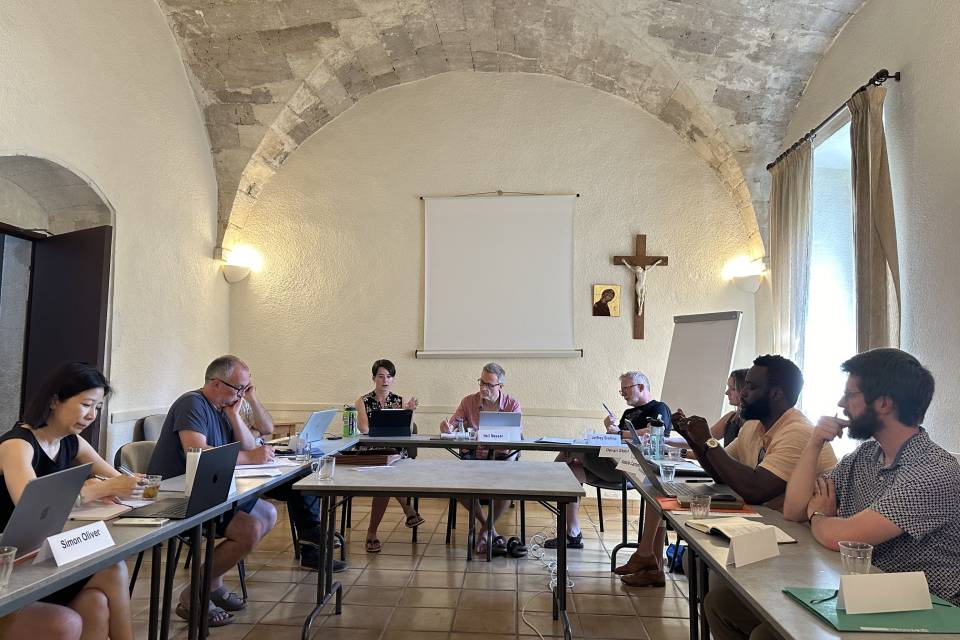College of Arts and Sciences Research
Research in Saint Louis University’s College of Arts and Sciences spans the arts, humanities, natural sciences and social sciences. Our diverse research culture transcends individual methodological approaches and disciplinary backgrounds.
Researchers in SLU’s College of Arts and Sciences write books and journal articles,
deliver presentations, create documentaries and digital projects, and write and direct
plays, among other activities. They work in labs, archives, libraries, clinics and
studios; on archeological digs; and in the classroom, where students learn alongside
instructors. Our researchers win awards and grants and are recognized experts in their
fields.
Informed by our University's Jesuit mission, researchers in SLU’s College of Arts
and Sciences are inspired by intellectual curiosity and motivated by a concern for
those most vulnerable in our society.
CAS Strategic Research Plan
The Research Advisory Council, composed of research-intensive faculty from various disciplines, guided the development of the College of Arts and Sciences’ five-year research strategic plan. This plan outlines the college's research objectives, highlights its existing strengths and identifies key opportunities for growth.
Research in Focus
Charles Parker, Ph.D., is a professor of history. Parker’s research includes the first wave of globalization in early modern Europe. He also sees SLU as a destination for the study of Catholicism.
Christina Garcia, Ph.D., associate professor of Spanish, knows that we make meaning out of the way someone speaks, for example, out of their dialect. For some linguistic features, we can recognize the difference and are consciously aware of how dialects inform meaning making. However, for the particular feature she studies in Ecuadorian Spanish, perceptions are more unconscious and yet still inform regional identity formation. Garcia’s goal is to highlight these differences in order to better understand the way in which cultures work and to recognize the beauty of linguistic diversity.
Ness Sandoval, Ph.D, is associate director of SLU’s Geospatial Institute (GeoSLU) and professor of sociology. Sandoval’s research tells stories using maps and works with students to use data and maps to look into the future.
CAS Faculty Research Resources
The Collaborative for Humanistic Inquiry
The Collaborative for Humanistic Inquiry (CHI) at Saint Louis University supports faculty and student research and scholarship in a range of humanities and social science disciplines and in humanistic-oriented natural science research. Additionally, it fosters collaboration among the eight college Centers of Scholarly Excellence.
Collaborative for Humanistic Inquiry
Student Research
Graduate students in SLU's College of Arts and Sciences engage in innovative research inside and outside the classroom. Their research enhances knowledge, deepens our understanding of the world and engages with the problems that face our communities.
Our undergraduate students also have opportunities to develop research skills in their coursework. They do this in varied ways, collaborating on faculty research projects, working in faculty research labs and designing and carrying out student research projects.
SLU’s College of Arts and Sciences offers several programs to support research, travel and other projects by SLU students.

